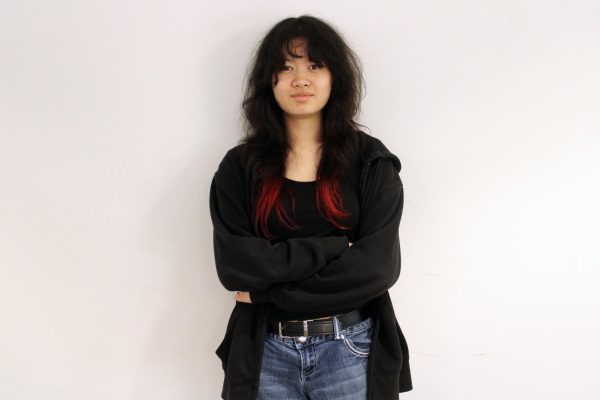Avoid hypocrisy; respect others
“The only vice that cannot be forgiven is hypocrisy. The repentance of a hypocrite is itself hypocrisy,” humanistic writer William Hazlitt once said.
There are many types of false virtues that people have, most involving strong demonstrations of hypocrisy. The hidden lack of respect for other’s opinions is one of these falsities that dictate the personality of many people, especially adolescents. This act of hypocrisy has led to many people developing self-image problems greater than what is considered to be normal in the average child.
In an entry from the “Journal of Youth and Adolescence,” written for the US National Library of Medicine/National Institutes of Health, a group of Norwegian doctors wrote that “one of the major functions of peers in adolescence may be to support the individuation processes related to … developing a separate identity, which increases the relevance of belonging to a peer group and being accepted by peers.”
In short, as adolescents, the way we treat each other either builds or destroys us. The trampling of a person’s individuality causes a negative growth in self-esteem and someone’s idea of self-worth. All individuals want a voice and an outlet to speak their own thoughts, yet when they hear those of others, the individual will most likely torture the opposer into submission, which is the deadliest show of mendacity that people have. The breakdown of a person’s self-identity to fuel confidence in another’s is an overlooked aspect to hypocrisy in both youth and adults. It is human tendency to want to develop confidence in an evolving individuality, but through breaking down other’s to create that, it is in itself, a form of bigotry.
One of the more noticeable aspects of hypocrisy, especially in America, is when citizens are marching around preaching first amendment rights, and then telling those of opposing views to kill themselves. Primarily, this act is illegal in many states, including Kansas. Secondarily, the emotional trauma that saying that can inflict on others can lead to many emotional and self-imaging problems. It gives people a lack of importance and can lead to more work at trying to gain back that sense that they matter than should be necessary. The act of dissolving any and all ideals of “freedom” is the worst attribute of hypocrisy.
“Honest discussions — even and perhaps especially on topics about which we disagree — can help us resist hypocrisy and arrogance,” North Carolina congressman David Price said.
Price speaks the truth with his words. If people were to abandon their pietism and discuss controversial topics in a civil manner, not threatening or disregarding others, the real ideals of humanity can be shown and society can advance.
For example, if someone wants to vote for Donald Trump, that doesn’t allow you to insult and degrade them. Or, on a smaller scale, you shouldn’t find any right in bullying someone because they don’t like chocolate and you do.
In general, the act of hypocrisy directly relates to the show of disrespect people have for others’ views on life. Wasting time forcing your ideology on your peers and refusing to see the other side of the spectrum is simply one of the acts of dissimulation that adolescents use.
If someone likes the beat and rhythm of rap and you don’t, there is no right to tell them to jump off a bridge because of their music taste. Putting yourself in others’ shoes is what allows the growth of bigotry to become extinguished. Would you like to be told that you should go home and slit your wrists because of whatever you like? Or how about having an app dedicated to throwing bird feces at your face?
From politicians to your parents to you yourself, everyone has opinions and preferences that matter to them. By stopping the assumption that you’re the only one whose ideas and likes matter in the world; others’ individuality will allow the world to continue to advance.The abandonment of hypocrisy will allow for people to grow and continue in a confident advancement of society.
“Hypocrisy is a detriment to progress,” free speech activist Larry Flynt said. “There’s always a hidden agenda.”






